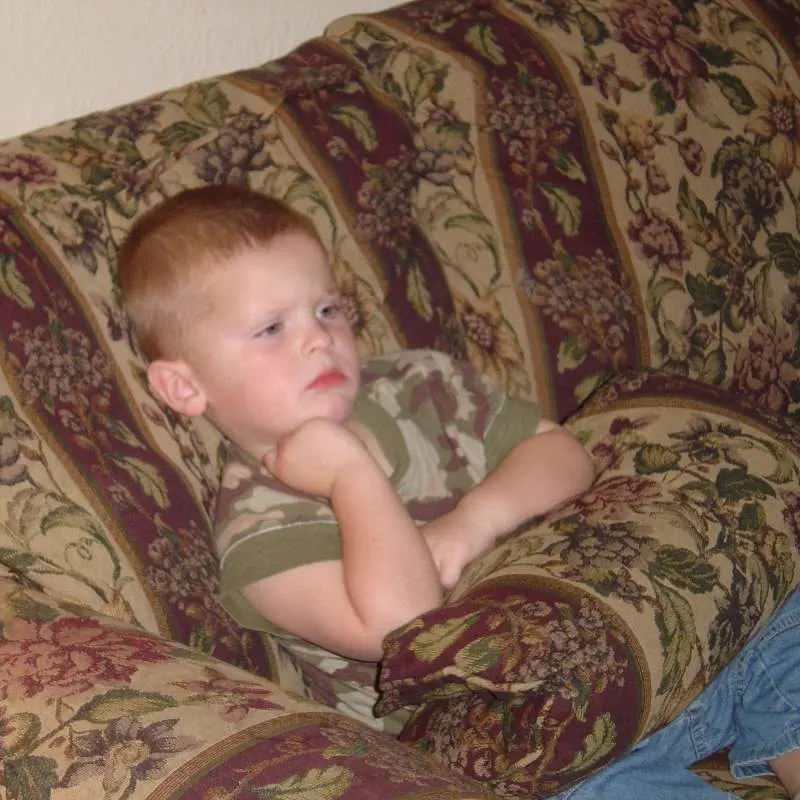- Clay Moon Phase Wall Hanging - July 4, 2023
- What To Do When a Toddler Won’t Keep Their Blanket On - June 10, 2023
- How Do Child Locks Work in Cars? (And When To Use Them!) - June 10, 2023
It might seem like children don’t start forming memories until they’re at least 5 years old, but this isn’t true. Toddlers start forming memories from as early as 2 years old and are shown to remember things much differently from adults. But how long do these memories last?
A 2-year-old can retain memories from the past 6 to 12 months. These memories include faces that the toddler has seen before, sounds they have heard, items they recognize, and patterns they are used to.
Continue reading to discover what you need to know about toddlers’ memories. I’ll also touch on some of the types of memories humans have and how they might apply to 2-year-olds.

Overview of Toddler Memories
Memories are the foundation of a child’s learning process. Children start to form memories from the minute they’re born, and these memories start to expand in their first year of life.
For example, breastfeeding babies get excited when their mothers place them in positions where they can suckle from her. This excitement occurs because these children have a memory of being breastfed when placed in that particular position, so the anticipation of being fed gets them giddy.
As toddlers grow older, the neurons in their nervous system begin to activate. Within the central nervous system, the hippocampus and prefrontal cortex (PFC) function to preserve and retrieve memories over the child’s lifetime.
A 2-year-old child can retain specific memories from the past 6 to 12 months. These types of memories fall into two categories:
- Implicit Memories
- Explicit memories
Implicit Memories in Toddlers
For a 2-year-old child, memories are mostly implicit in nature. Also known as non-declarative memory, this is the first type of memory to develop nine months after birth. Implicit memory is where emotionally significant experiences are stored.
In other words, a child remembers feelings attached to a certain memory more than the memory itself.
For example, if a toddler witnesses a horrifying car accident while a particular song is playing, that toddler will likely experience the feelings of terror that the accident created in them after hearing the song again — even if they cannot recall the specific details of the accident itself.
Explicit Memory in Toddlers
Explicit memories, also called declarative memories, are the portion of a child’s memory that only begins to develop in the second year of life. Explicit memory collates experiences in ways that toddlers can remember vividly. A toddler with an active explicit memory can use words to describe specific events in sequence.
Using the same example above, a toddler with a functioning explicit memory may be able to recall what happened during a car accident using their limited vocabulary.
Types of Sensory Memory for Toddlers
Like their adult counterparts, toddlers process information about the world through their five senses. This information is then stored for later use in the form of sensory memories. I’ll discuss some of the most common types of toddler sensory memories below.
Visual Memory
It’s said that as much as 90% of information that humans absorb is visual. Therefore, your toddler’s ability to perceive the world through their eyes is important.
With their visual memory, toddlers can remember sights, parents’ faces, and the general appearance of things. A 2-year-old can display an impressive ability to remember past events that happened within 24 hours (source).
There are many ways to improve your child’s visual memory (source). One of the most popular is a good old-fashioned memory game using cards with images.
The memory game works as follows:
- Put all the cards face down on a flat surface.
- Let your toddler pick out a random card. Ask them to remember where it is. Then, lay that card face down again.
- Let your toddler pick out another card. If it matches the card they picked earlier, ask them to remember where the last card was. If your toddler remembers, remove the two matching cards. Otherwise, lay the card down and start again.
- Repeat the above steps until all of the matching cards have been found.
You can create a deck of memory cards on your own, or you can buy a memory card game, such as the Skip Hop Toddler Memory Game (link to Amazon), for fun, toddler-appropriate images. The bright colors and cute character designs will catch your child’s attention.
Olfactory Memory
Olfactory memories are created through smell. If a toddler catches a scent for the first time and there are particularly vivid or visceral events attached to it, the toddler may come to associate that scent with those events.
If you want to take advantage of your child’s active olfactory memory to teach them things, you can introduce new scents whenever you teach them something new or during their playtime.
Auditory Memory
Auditory memory is the ability to hear something and recall it later. Toddlers with active auditory memories can associate sounds with items and people, including themselves.
This is why a toddler can respond to their name being called, even if they can’t understand other words. A child that struggles with auditory memory may have difficulty paying attention and following instructions.
Gustatory Memory
A toddler’s gustatory memory is associated with identifying food tastes through the gustatory receptor cells, a.k.a. taste buds. The main tastes humans can identify include salty, sweet, bitter, sour, and umami (source).
The last one is usually described as a savory, meaty flavor often found in dairy foods and seafood.
You can put your child’s gustatory sense to good use as follows: Ask your child to chew a unique flavor of gum while studying for an important test and chew the same gum flavor while doing the test.
This will help your child associate the flavor of the gum with the information they need to recall for the test (or, at least, the experience of taking the test itself).
Conclusion
Contrary to popular belief, children can form memories from the moment they’re born. As they grow older, their ability to absorb and process these memories grows as well.
It’s important to note that while most children can remember implicit memories at nine months, explicit or episodic memories cannot be recalled until toddlers are at least two years old.
Author Notes:
Teresa is a Registered Nurse in the State of Texas and the mother of two. Opinions and insights on childcare are based on professional knowledge, academic research, and personal experience.
Recommended Reading:
Make Your Own Beautiful Living Succulent Wreath Centerpiece! Complete video course by Jeannine Romero now available through Skillshare.
